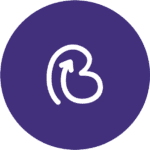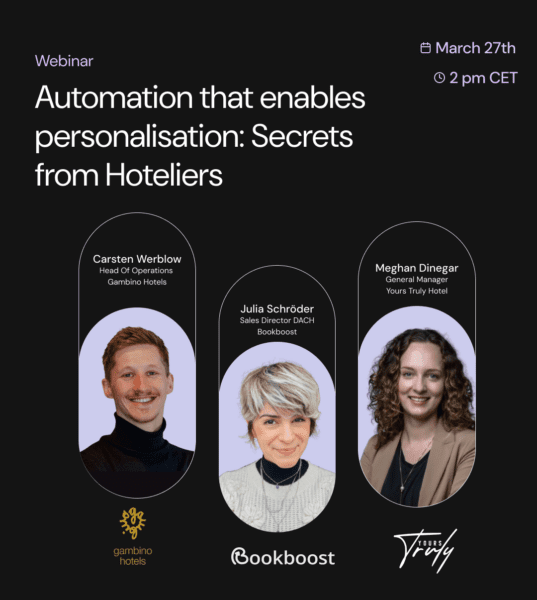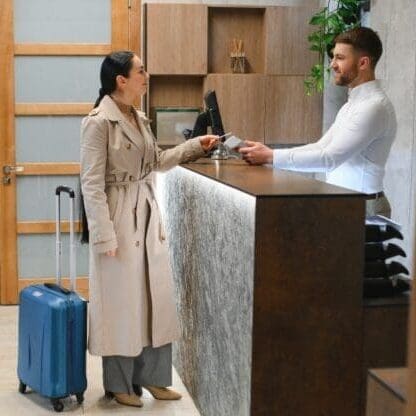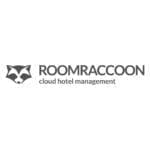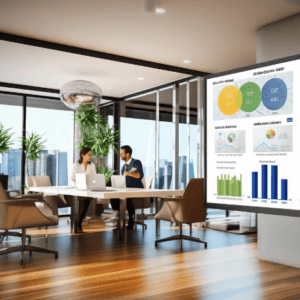 In a competitive hospitality industry like now, hoteliers need to prioritise creating a memorable guest experience to attract and retain customers. A Customer Experience Platform can help hotels achieve this goal by providing different solutions that will impact the way of engaging with your guests.
In a competitive hospitality industry like now, hoteliers need to prioritise creating a memorable guest experience to attract and retain customers. A Customer Experience Platform can help hotels achieve this goal by providing different solutions that will impact the way of engaging with your guests.
A Guest Experience Platform can encompass various technologies in one platform, for example, a customer relationship management (CRM), a guest app, and more.
And all these products are aiming to the same goal: help hoteliers to streamline communication with guests, make the most out of their guest data and enhance the guest experience.
When it comes to the results of implementing a platform that is focused on the guest experience, improved guest satisfaction and loyalty, higher ratings and reviews, and increased revenue through repeat bookings and positive word of mouth are just a few.
Here are 9 benefits of implementing a Customer Experience Platform based on real-life cases of hoteliers looking to stay competitive in the ever-evolving hospitality industry.
1. You will Increase click-through rates by direct messaging
In many cases, direct messaging has replaced email as the communication channel of choice for guests. Today, a variety of messaging apps give guests options to choose from and accommodation providers the opportunity to make the experience seamless.
By implementing a Customer Experience Platform that includes a Multi-Channel CRM, you will be able to get 8 times more conversions than with an email-only CRM. This is the case with Ruby Hotel, a luxury hotel brand located in 10 major European cities, which modified its strategy and added more communication channels to its campaigns. With this, they managed to get 290x times more conversions than with their old approach. It helped them engage with customers more effectively and offer memorable stays.
Besides that, they implemented other solutions like a web messenger that uses artificial intelligence to automatically respond to questions from website visitors and lets customers communicate with Ruby Hotels on their preferred messaging platform, for instance, WhatsApp, SMS, and more.
Read the complete story from Ruby Hotels here.
2. Enhance guest satisfaction by using hyper-personalisation
By tailoring every touchpoint of the guest’s journey to their preferences, you create a truly memorable and personalised experience. From personalised recommendations to customised offers, guests feel valued and cared for, leading to increased satisfaction and loyalty.
In the case of STAYERY, a provider of apartment-style accommodations with hotel-like services in six major cities in Germany, guest satisfaction was a top priority. They faced challenges in efficiently tracking guest communication and meeting guests’ needs promptly. However, after implementing personalised communication and hyper-personalised guest journeys, they experienced a remarkable transformation.
A CRM allowed them to segment guests and deliver tailored messages throughout the guest journey, ensuring that each interaction was relevant and meaningful. As a result, STAYERY could monitor and manage every stage of the guest trip, from pre-stay to post-stay, leading to improved guest satisfaction and enhanced tracking of their guests’ journey.
Read more about STAYERY’s story here.
3. Increase online check-in rates
Online check-in can help hotels to automate their tasks and free up staff for other significant tasks that need more attention. Online check-ins can cut the waiting time for guests and can provide a stress-free check-in from the ease of their mobile phone which enhances the guest experience.
A perfect example of how to use a multi-channel approach and automation to reach higher online check-in rates is Capsule Hotel, an innovative hotel chain in Switzerland, that wanted to automate most of its guest journey to provide a seamless guest experience by implementing technology. The hotel saw an average of 60% opening rate of online check-in after they streamlined their process by sending online check-in information through different messaging channels instead of just email.
The hotel project and account manager said, “Adding WhatsApp as a messaging channel has made a great improvement since if some people don’t open the email, they do read WhatsApp.”
You can read more about Capsule Hotel’s story here.
4. Increase positive reviews
Automating the workflow can free staff from repetitive tasks and allocate them to other important projects that need more attention, but it can also lead to creating a more positive experience for your guests. An example of this is the case of the Hakuba Hotel Group.
The brand located in Japan automated all the guest queries that were frequently asked. This not only helped the staff to utilise their time efficiently but also made the guests happier as their questions were answered almost instantly, increasing guest satisfaction and the amount of positive feedback.
Asia’s most premium accommodations and dining options provider, Habuka Hotel Group’s used case is a great example of using a Customer Experience Platform to automate guest communication. They received positive reviews about their communication and how fast they answer and give information to their guests. Overall, their reviews went up by around 30% since implementing the new digital solutions.
Read the complete story of the Hakuba Hotel Group here.
5. High engagement rate by digitalising guest journey
The digitalisation of the guest journey involves using technology at every touchpoint, from pre-arrival to post-departure. This can include everything from online booking, mobile check-in, room keyless entry, personalised recommendations, and real-time communication with hotel staff.
Lindemann Hotels had the goal to attract and support its customers digitally throughout the entire customer journey, from the moment of booking to the stay and beyond.
By adding new channels to their guest journey and digitising the complete experience, they achieved a high engagement rate. A few examples of what they are doing: a personalised and segmented email is automatically sent to the guests at the time of their reservation confirmation; a few days before the guest’s stay, they are reminded to register online or to fill out the digital registration form. The different messages are sent at the most convenient times and through different channels, depending on the guests’ preferences.
More information on their digitisation process can be found here.
6. Save money by increasing operational efficiency
A customer experience platform can centralise operations and make it easier for hotels to manage their operations and improve efficiency, this can result to cost savings, increased productivity, and better guest experiences.
This is the case with Citybox, a modern budget hotel with no front desk reception, restaurant, or bar. Instead, Citybox has its own check-in kiosk, a host office and the guests themselves take care of booking, payment, check-in, and check-out. Citybox increased its operational efficiency while saving up to 5-digits in staff members by streamlining their process. All their communication and queries for all their properties were gathered in one inbox which freed their staff from recurring tasks to focus on guest satisfaction.
Read more on how they saved 5 digits here.
7. Increase cross-selling by targeting the right guests
Cross-selling is an effective way for hotels to increase revenue by promoting additional products or services to their guests. To be successful, you need to target the right guests with the right offers to increase their guest experience.
In the successful case of Jorplace Hostel, a low-budget hostel for backpackers in the Netherlands, it was important for them to increase their revenue by cross-selling their additional services. They achieved a staggering 88% increase in cross-selling additional services, such as parking, late check-out etc. This was only possible by segmenting specific guests to send messages with the most relevant information from the data. They picked the right audience and communicated the right message to them that exactly met their needs at that precise moment.
Read out more about the tools they used to increase their revenue here.
8. Save up to 2 hours of daily tasks
By automating tasks and leveraging technology to streamline operations, hotels can save up to 2 hours of daily tasks, allowing staff to focus on providing personalised service to guests. This can lead to an improved guest experience.
This is the case of Northern Lights Village, a Finnish hotel that offers unique accommodations like laser-heated glass roofs for unique experiences. The team wanted to maximise their guest experience by improving the communication time with their web visitors. They automated the guest communication online and provided quick responses to the users. This freed up time for their staff, helping them to dedicate their time to value-adding tasks to provide a memorable experience to their guests.
Get more details on how they achieved this here.
9. Adopt technology for increased satisfaction and revenue
To stand out of the crowd, adopting technology and providing unique experiences to the guests can help hotels to make a mark in the industry in the early stages of their business. This can lead to an increase in revenue and brand recognition.
Cityhub is an example of a forward-thinking hotel group that offers hub like accommodation to beat the traditional hotel experience. They made it easier for guests to chat with them by using their preferred communication channels to build a genuine connection with guests.
More about their experience here.



